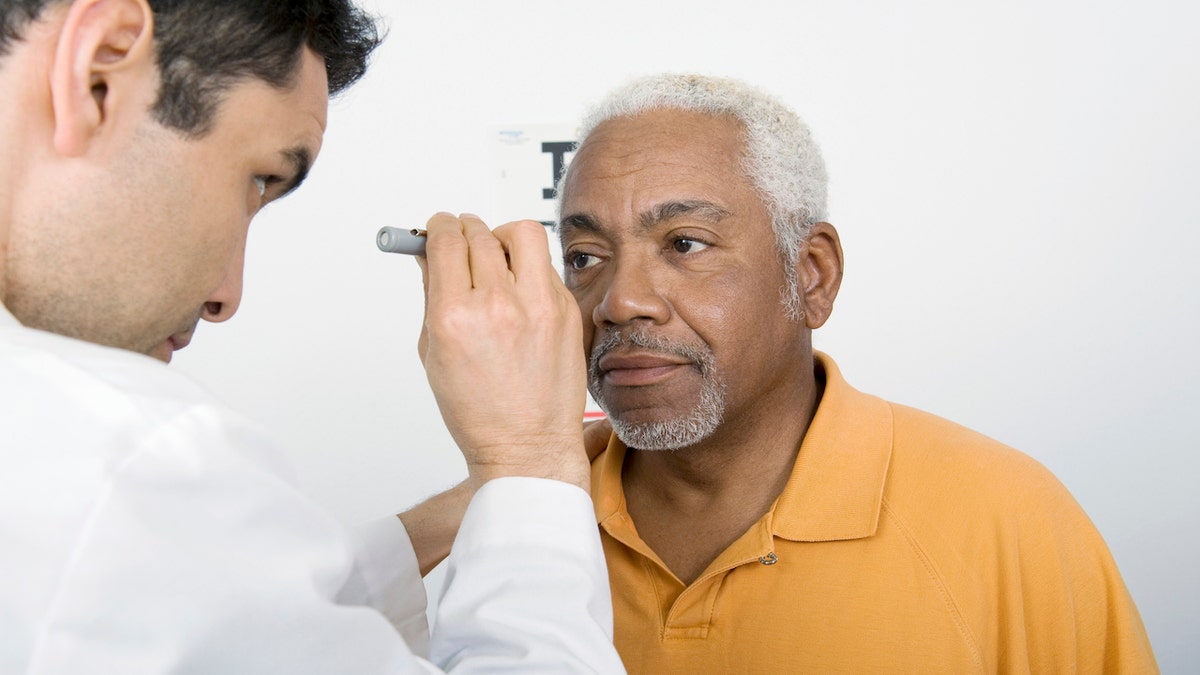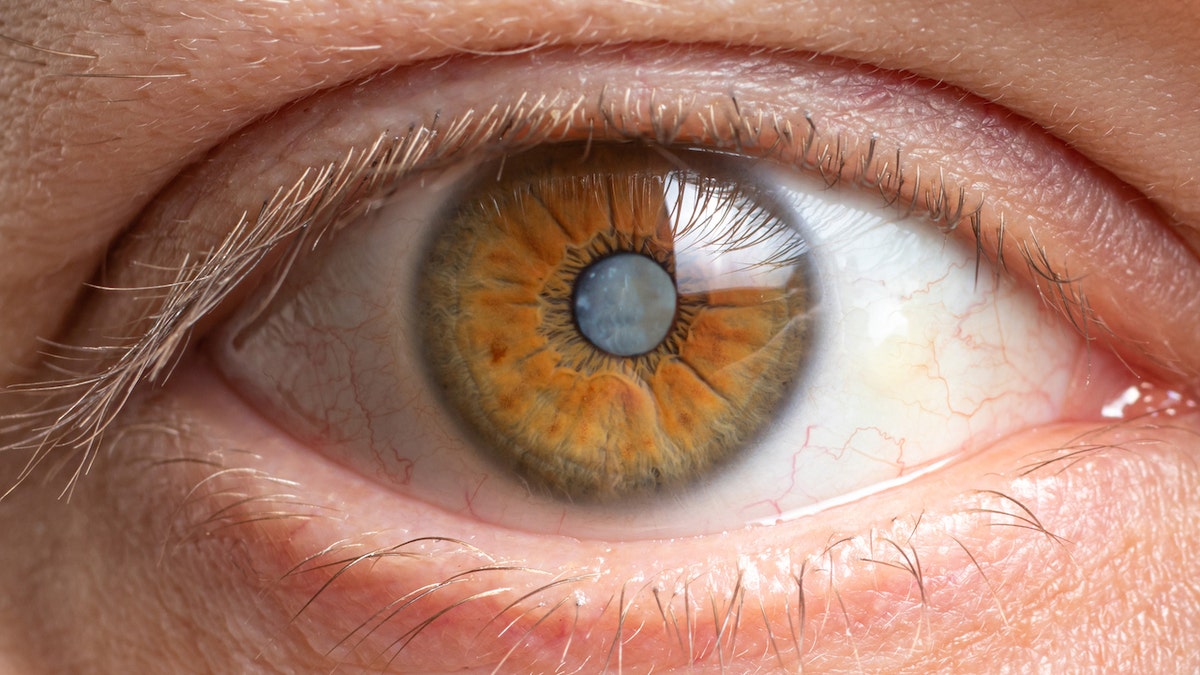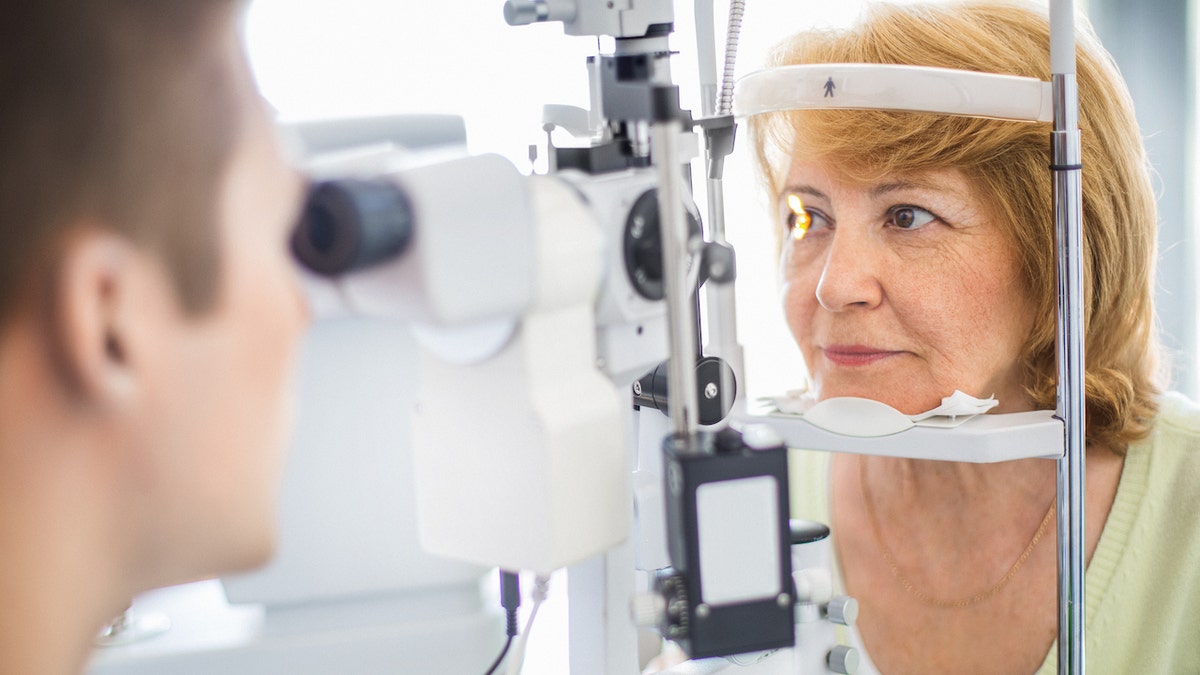New Alzheimer's drug pending FDA approval
Chief Washington correspondent Mike Emanuel reports the latest on the new Alzheimer's drug.
Older adults with vision problems may be more likely to develop dementia, a new study published in JAMA Ophthalmology has found.
Researchers at the University of Michigan, Ann Arbor analyzed data from the 2021 National Health and Aging Trends Study, which showed a link between all types of vision problems — distance acuity, near acuity and contrast sensitivity — and a higher prevalence of dementia, including Alzheimer’s disease.
Distance acuity (visual acuity) is a measure of the clarity or sharpness of vision from 20 feet away, according to the American Optometric Association.
This is usually tested by having the person read letters on a Snellen chart.
POPULAR CONTACT LENSES COULD CONTAIN TOXIC ‘FOREVER CHEMICALS,’ NEW STUDY FINDS
Near acuity is a measurement of how well someone can see something up close.
Contrast sensitivity measures the person’s ability to distinguish between an object and the background it is set against, or to differentiate between two similar colors.

Older adults with vision problems may be more likely to develop dementia, according to a new study published in JAMA Ophthalmology. (iStock)
The more types of vision problems a person has, the higher the chances of dementia, the study findings stated.
The study included national data from 2,967 participants aged 71 and older.
"We hypothesized that visual impairment would be associated with dementia because prior studies found an association," said lead study author Olivia Killeen, M.D., clinical lecturer for ophthalmology and visual sciences at the University of Michigan, in a statement to Fox News Digital.
"Loss of visual stimulation will lead to withdrawal and less mental engagement."
"Eye health and brain health are closely linked in older adults," she added.
"This study is unique because it used up-to-date, objectively measured visual acuity (meaning participants all had their vision tested)," she went on.
"This allowed us to analyze the associations between visual acuity and dementia."
Vision problems largely preventable, say experts
Although eye health and brain health are closely linked in older people, the good news is that most vision problems are treatable, Killeen said.
"For example, cataracts are one of the main causes of visual impairment in older people, and vision loss from cataracts can be reversed with cataract surgery," Killeen explained.
"Because visual impairment is associated with dementia, treating vision problems may be one key to reducing the risk of dementia."

A Cedars-Sinai study found in March that early signs of Alzheimer’s disease can be detected in eye exams. (iStock)
The study did have some limitations, she pointed out.
The researchers did not have information on the causes of visual impairment, which means they couldn’t study the association between specific eye conditions — such as cataracts, glaucoma and macular degeneration — and dementia.
BE WELL: GET REGULAR EYE EXAMS TO PROTECT VISION AND CATCH WARNING SIGNS EARLY
"Randomized controlled trials are needed to measure the impact of treating vision problems on dementia," Killeen said.
The results are consistent with previous research showing a link between sensory impairment and higher risk for dementia, agreed Dr. Gary Small, chair of psychiatry and behavioral health physician-in-chief at Hackensack University Medical Center in New Jersey.

"Getting routine eye care is important for early diagnosis and treatment of vision problems," said the lead author of a new study. (iStock)
Small was not involved in the University of Michigan study.
"Mental stimulation keeps neural circuits active and strong, which protects the brain from age-related declines," he told Fox News Digital.
"Loss of visual stimulation will lead to withdrawal and less mental engagement."
CLICK HERE TO SIGN UP FOR OUR HEALTH NEWSLETTER
Given this recent study’s large sample size and "objective measures of visual impairment," Small said the results are particularly compelling.
"It's important for anyone, especially older adults, to regularly check their visual acuity and correct deficits to optimize quality of life and protect against dementia," he said.

The more types of vision problems a person has, the higher the chances of dementia, the study findings stated. (iStock)
Added Small, "The bottom line is that the old adage, ‘Use it or lose it,’ applies not just to physical health but to cognitive health as well."
Protection and prevention are key to improving outcomes, both visual and cognitive, Killeen agreed.
CLICK HERE TO GET THE FOX NEWS APP
"Getting routine eye care is important for early diagnosis and treatment of vision problems," she said.
"The American Academy of Ophthalmology recommends that people 65 and older get routine eye exams every one to two years."
"It's important for anyone, especially older adults, to regularly check their visual acuity and correct deficits to optimize quality of life and protect against dementia."
As Fox News Digital previously reported, a Cedars-Sinai study found in March that early signs of Alzheimer’s disease can be detected in eye exams.
EARLY ALZHEIMER’S DISEASE COULD BE DIAGNOSED THROUGH EYE EXAMS, NEW STUDY SUGGESTS
Patients who had mild cognitive impairment or Alzheimer’s disease were found to have higher amounts of amyloid beta 42, a protein that forms the "plaques" that build up in the brains of people with Alzheimer’s — as well as cells called microglia, which are also associated with progression of the disease — in their retinas.










































